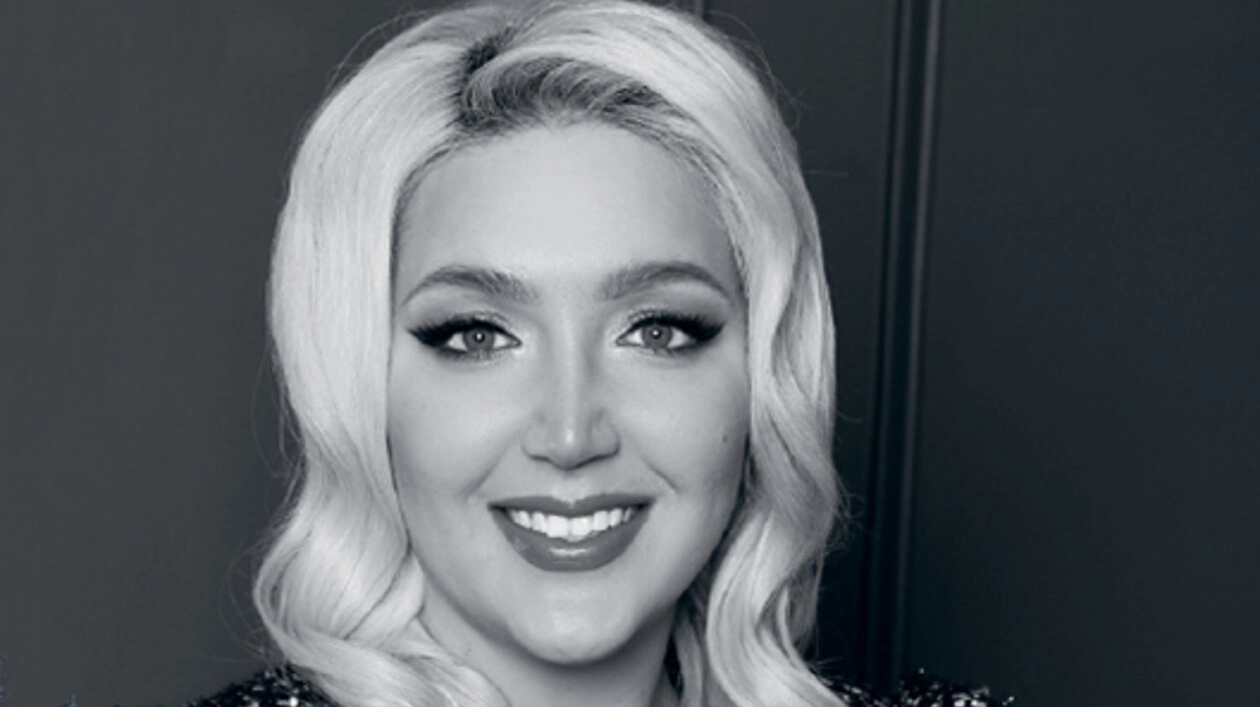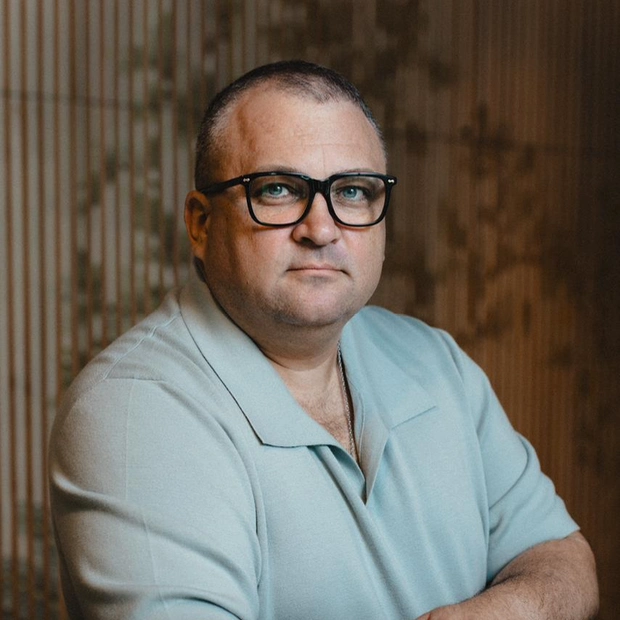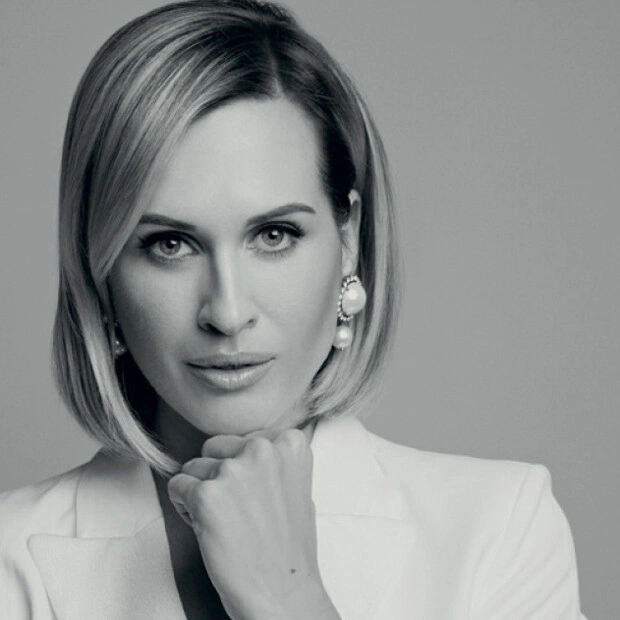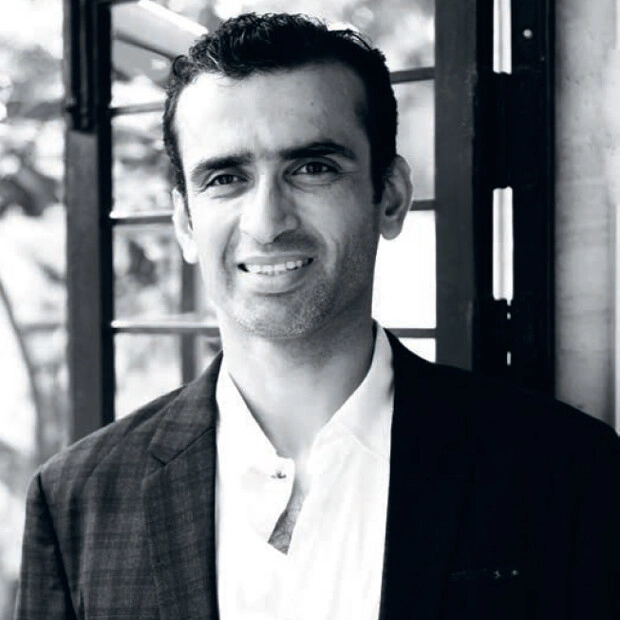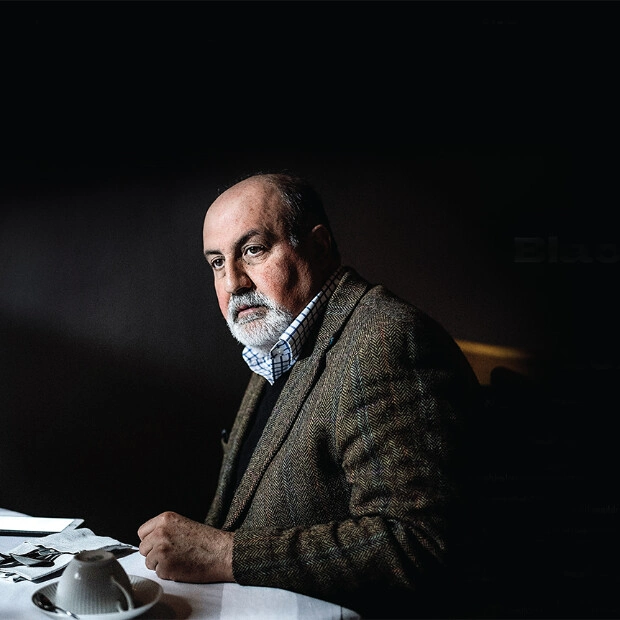Interview — Lara Lychagina
We observe the world changing, at times without realising that we should keep abreast of the developments. In the meantime, our obviously inert and outdated education system meets modern requirements pretty much like Aristotle’s Lycee and Gymnasia – it’s OK but somewhat last-century. Mila Semeshkina, the founder and CEO of the Lectera.com global educational platform, the author of the Fast Education methodology, and President of the international Women’s Empowerment Council organisation, dwells on what kind of training must be provided at present and her project’s mission.
Lara Lychagina: Yours is an incredibly interesting career, from PR and marketing to running Lectera.com, an international educational platform. Could you explain why success attends you at every turn? What is the source of your strength?
Mila Semeshkina: Judging yourself from the outside is no easy matter. Frankly speaking, I am my own harshest critic. To err is human, and I, too, sometimes fail. However, every time my desire to reach a global target and my vision of something greater make me get started anew and keep moving on. Oftentimes, I look at my big goals to realise that again, I’ve hitched my wagon to a star and set yet a higher bar, the way to which is long and hard. Still, I cannot stop, my inner motivation always pushing me forward. I find it really exciting too. My wishes are a never-ending story – with a goal reached, the next one is already set, not necessarily in the realm of my career by the way. I’ve got plenty of interests, travelling and learning about different cultures among them. I am a true pleasurist in love with life and can say my love is definitely reciprocated. I enjoy a lot in this world. Far from everything, mind you. If something doesn’t work out for me, I just draw my conclusions from this experience, change my approach, and move on. My failures never stop me from keeping my eyes on the prize, as I’m used to taking responsibility for my blunders and keeping my wheels rolling, so to speak. That’s what, perhaps, is the source of my strength.
L.L.: Let’s talk about the key messages of your book ‘Learn or Leave the Market.’ Why and who did you write it for?
M.S.: ‘Learn or Leave the Market’ is my first book about finding oneself in the modern labour market, growing quickly and effectively, and learning new skills. I wrote it while preparing to launch Lectera. I meant it to be a motivational kick for ‘inflaming’ those at a loss what to do. I’m happy that it has proved useful for a wide range of readers, from secondary-school pupils and university students to adults unable to find their vocations. The labour market is a rather complicated area, so I did my best to make my text easy to read and fill it with all kinds of vivid stories and my own inventions. It turned out to be a really good book with a first-class layout, plenty of tasks, and spaces for notes. It’s been translated into four languages, and so far, over 100,000 readers have downloaded it all over the world. I’m getting incredible feedback from them and my readers’ success stories are a true inspiration for me. My second book – ‘A Million-Worth Career’, to be released soon, - is for those wanting not only to find themselves in the modern labour market but to forge a successful career and earn a lot of money. It will also be easy to read, while all the difficult stuff will be explained by special illustrations and stories. It is to feature a good deal of case studies and examples for those prepared to work hard for five to eight years to make it to the top in the end.
L.L.: How could you formulate your mission?
M.S.: Let me put it this way: there’s a principle and a mission I’ve got, which are not to be mixed up. My very simple mission is to help people find themselves and their vocations, so they could self-actualise ad maximum in their careers. That’s what my work is all about. Lectera, my publications, my huge Instagram blog, my YouTube channel, and the books I write explain how to find and develop oneself as well as remain sought-after in the labour market. Meanwhile, my principle is to change people’s lives for the better. So far, I’ve been quite successful in all that, which is of utmost importance for me.
L.L.: The media often use the term ‘EdTech’ as a synonym of online education, though its meaning is actually much broader. How would you explain what EdTech is all about?
M.S.: EdTech is not about education only but about the technologies of the future that are to change the learning process. Lectera is a good example of EdTech, based on Artificial Intelligence, with no mentors, the platform itself checking the users’ progress and recommending relevant case studies, texts, etc. Yes, there are other platforms equaling us in quality, but in terms of usual on-line schools with video lessons and mentors, they are not as hi-tech as necessary. This is not the way for our industry to go. I’m sure the course prices must be lowered to make education free eventually. The industry is in a tight corner now and needs a shake. The current world cataclysms prevent EdTech from developing as it should. There’s a lack of investments, while most of the world’s brainpower is busy elsewhere. In the meantime, education is capable of making humanity richer, happier, cleverer, and more peace-loving. When people are well-educated and intellectually skilled, they tend to follow much better life scenarios. The so-called ‘third-world’ countries are a good example – Africa, India, and Latin America are seeing a real on-line education boom, the prospects being very good.
L.L.: Launching Lectera, did you understand exactly what must be changed in the training process?
M.S.: While working out the Lectera concept, I realised many things must be changed. The reasons are obvious: the education industry has found itself in a tight corner, with the fees, including on-line tuition, sky-high and the EdTech speed as well as the number of users growing insufficiently. With the knowledge database getting out of date, users are not acquiring good-quality knowledge. No high-quality novelties are on the horizon. And, most importantly, the current methodology is way out of date. Practically all on-line platforms offer video lessons to be viewed by users, followed by home tasks to be checked and assessed by mentors. There is a good chance of getting bad marks or low scores. Alas! This system is going the way of the dodo, so nobody wants it. Many hate schooling because of the marks and the teachers’ or mentors’ biased attitude. But first and foremost, this kind of training takes years! In the meantime, many professions, such as marketing, transform very quickly. You can’t afford spending nine to eighteen months studying them as you’ll end up unfit for work. Training must be short and fast with a minimum number of participants in the process. That’s why there must be fewer mentors but more AI, technologies, and applied knowledge. That’s the approach we used building Lectera. That’s what my Fast Education methodology is all about. We, in essence, are working out a fast-training model, with tuition fees at the minimum and practice-oriented information and skills at the maximum.
L.L.: Could you talk about your Fast Education proprietary methodology please? What is the Lectera training format all about?
M.S.: The fast training methodology, as you can easily guess, is aimed at learners’ acquiring knowledge and skills in a very short time. So, each of our courses consists of 10 to 15-minute lessons. The average course length is 60 to 120 minutes. The courses are divided into small topics as in many cases, one has to solve a particular problem and does not need a long read about the subject, starting with the appearance of mankind. That’s why we give users only the most essential information to prevent them from wanting to drop out. I think all of us were once ‘injured’ by formal schooling. Many are reluctant to be trained due to the secondary school and university very tough requirements, educational and discipline standards, and screening out, often dealing heavy blows at one’s self-esteem. It must not be so. That’s why we provide every user with excellent self-assessment opportunities. We give no grades or marks and do not check home tasks. That’s what AI is for. Our most user-friendly training includes watching videos on the computer or smartphone screen, listening to podcasts, reading texts, or doing all these activities simultaneously. Our users are absolutely free in their choice. We are very proud to observe an unprecedented 86 % of them complete their training courses. About 40 % choose another course at once and continue their studies. Nobody else in the market can boast of such figures and results, while ours are what they are thanks to our sincere wish that people should love learning new things and skills. Even our courses for children and teens aim not only at their acquiring skills but at enjoying the learning process as well. Training must always be both interesting and enjoyable! One of my goals is to bring up a more self-confident generation fond of learning and knowing what kind of results and careers they want. Learning while living is the most useful and wonderful habit. Of that, I am absolutely sure.
L.L.: Could you talk about your team please? What is it like managing people from different countries? What difficulties do you face? What are the bonus features?
M.S.: Lectera’s is, indeed, a great team I am incredibly proud of. We constantly develop and grow. Now, there are more than 800 of us, from 27 countries. I am quite happy working with all of them. We are a multi-language platform, and by the end of 2022, we’re planning to teach in 16 languages. By all means, we need a large number of translators, interpreters, proof-readers, and content editors to release high-quality content. All my team members are open-minded, considerate, and respectful of each other’s cultural and religious peculiarities, taking good care of one other. We value and hold in high esteem each other’s professionalism - one of our company’s major principles.
L.L.: In 2020, the venture capital investments in the world education market amounted to $16 milliard. At the moment, the market is gaining momentum. Let’s talk about the EdTech market prospects.
M.S.: Let me say from the outset, $16 milliard for this venture investment market is very little. It’s definitely a growth compared with the previous years but not so considerable. I have an explanation as to why so. Creating and promoting a good product requires investments. Lead generation (attracting new users) requires more funds than anything else. The problem is that instead of developing cool high-quality products, many platforms compete for leads. As a result, huge budgets are spent, while the user’s benefit is at the minimum as the teaching standards are pretty much on the same low level everywhere. So, $16 milliard is, of course, very little.
I regret to say there are few ‘unicorns’ in EdTech. We are planning to become one within a few years and steadily moving towards this goal. Now, we do not accept any outside investments and are developing rapidly, attracting 70 – 100,000 new users monthly. Even according to the pessimistic forecast, by the end of 2022, the total number of our users should exceed a million, while the optimistic one forecasts 1.5 million. At that, we constantly improve our content and course quality as well as localisation without pumping up an asset bubble, detrimental to the product quality. Nowadays, users often don’t get what they come to our market for, get disappointed, and start holding our whole industry in distrust. That’s why I am quite unhappy about the current overall situation in the EdTech market. The investments might grow when the quality of the products released is significantly improved.
L.L.: Why do you think online training can win more popularity than the traditional system?
M.S.: As a matter of fact, I expect the traditional training to go on-line in the near future too. The necessity of in-person class attendance at schools and universities is decreasing day by day. Such disasters as COVID-19 have played their part here. As a result, now, everybody understands that distance learning can be as effective and saves students their journey time to and from school. There are certainly some disadvantages – losing touch and narrowing networking. Still, I do believe the traditional education system is to be transformed radically. The off-line format is most likely to become exclusive and elitist, the rest becoming completely on-line. That’s why we shouldn’t expect any tectonic upheavals in a dreamlike future as they are already taking place, and within a decade or so, everything is sure to change. Meanwhile, with such technologies as AR and VR introduced, this future will become our present before long.
L.L.: How is Russian EdTech developing?
M.S.: I suppose Russian EdTech is going to be stalled for a while due to the current geopolitical situation. Since all international investments have stopped, the domestic ones are also likely to drop. The investors in the existing platforms will get either a small ROI or none. Unfortunately, the Russian EdTech industry will somewhat freeze for a few years. That’s one of the reasons why we initially launched our platform in different locations worldwide at the same time. For us, the Russian market is a local one anyway. In the meantime, the companies and start-ups that haven’t gone international will be locked in for a while.
On the other hand, it should help them improve their content quality and make a technological leap because it’s Russian companies and content developers that have the coolest IT specialists and the most advanced IT technologies. Russian EdTech is sure to get a new boost of energy and development.Another problem, both for the Russian and international markets, is that the expected global leap and user inflow haven’t become reality. Everyone was sure the pandemic would provide EdTech with large investments and a fantastic growth. In the meanwhile, we can see the pre-COVID-19 EdTech user share of 2-3% increase to 5-6 % only, which cannot be called an explosive growth. I don’t think we should expect many more users to join in at the moment. While, those who do must be provided with the best quality content by all platforms.
L.L.: Could you talk about the main modern educational technologies please? What’s their essence?
M.S.: In my opinion, the future of educational technologies lies in automating the whole learning process. Personal mentorship will soon remain in the niche of very expensive training. When the platforms realise they cannot offer low-cost courses only due to a large share of human labour to be paid for, they will have to introduce automation. It’s a basic principle of educational technologies. That’s why we are already in a hurry to integrate the best interactive tools with AI on our platform. It’s only natural that we should bank on the generation living all their conscious lives with the latest digital technologies, tablets, and the Internet. They are sure to imbibe immersive training via VR and AR. So far, the main customers ordering such tools are large corporations, but I am positive that very soon, VR and AR products will be used by schools and universities too. For example, the Dutch company VR Owl has already launchedtheir TeachVR platform, allowing to conduct virtual history, biology, and geography lessons. I also know that by 2024, Russia is planning to introduce similar mechanisms in 25% of its educational establishments within the ‘Digital School’ project.
L.L.: What’s the secret of launching a successful startup?
M.S.: I must confess there is no secret. It’s not enough to launch a start-up. After that, it must be capitalised, supported, and developed. So, there’s no precise recipe for success. If it did exist, 100% of start-ups would be a success. In the meantime, only 3-5% are at the moment. Challenges are many - technologies and software as well as attracting customers and investments, to mention just a few. And even if you can find investments, you cannot make end-users fall in love with your product. Meanwhile, customers’ love is a must-have, but it’s extremely hard to get. That’s why you need perseverance and a reliable team that won’t give up in case of failure. Launching a start-up is never an easy matter. If someone somewhere down the line writes a recipe book, complete with a full list of all the necessary ingredients for launching a successful start-up, this person will deserve a Nobel Prize. The thing is the market factors, determining success or failure, are absolutely unpredictable.

L.L.: What did you use to dream of? Have your dreams come true?
M.S.: I’m one of those who immediately convert their dreams into goals. A school gold medal, a university diploma with honours, post-diploma work in the USA, a Master’s programme at Moscow State University, a post-graduate programme, a career at an international business company, and my own successful international-level project used to be my dreams, but before long, they would one by one just become my agenda. My current goal is to make Lectera.com the world’s EdTech Platform Number One in all aspects and spread even more light, information, development, and creativity. In an ideal scenario, I want to help one milliard people find their vocations and build successful careers.
L.L.: You are President of Women’s Empowerment Council. Could you talk about the mission of this international organisation and your personal input please?
M.S.: Women’s Empowerment Council’s mission is equaling women’s rights and chances to develop themselves and their careers with those of men. I’ve been in business for many years already but definitely feel it’s still, by all means, men’s territory. Nonetheless, they are already being pressured by many talented and smart women from Europe and America as well as from India, Pakistan, the Philippines, Africa, and the Middle East. These ladies often leave many men behind in terms of perseverance, education, discipline, and networking skills. Women always face more challenges, being expected to be beautiful, slim, ideal wives and mothers, and anything else but themselves. I think every woman’s first and foremost obligation is to herself only.
Many men, surprisingly, subscribe to this point of view.I feel inspired by women’s success stories. In many cases, they are quite complicated. My own way to success has been anything but easy. I’m convinced women deserve to be top managers, board of directors members, and run not only large companies but even governments. Our organisation, uniting more than 30,000 women worldwide, does its best and utmost to direct women, explain and show them opportunities for further self-growth. My big goal for the next few years is to allocate about a milliard dollars on assisting women in acquiring new knowledge and professions. Lectera, my books, and all my work in general will help it happen. This is, in essence, my social mission.
L.L.: Could you talk about your mentorship and unique course on the Lectera platform? How did you come up with your marathon?
M.S.: If you accumulate a good deal of knowledge, at some point, you start feeling like sharing it with people rather than letting it remain unused to make the world a better place. I had my book published, and my work helped hundreds of people forge international careers. Then, I felt I wanted even greater results. So, I launched this marathon to enable people to find themselves and their own vocations. Several thousand individuals have gone through it, and I’ve spent a colossal amount of time helping each of them work out their personal positions. So, I’ve decided to introduce automation not only at Lectera but at the marathon too. It’s transformed into a training course, soon to be available on our platform free of charge. Within the next few months, an excellent career exerciser in the book format will also be published. With my personal mentorship needed no more, our users will be able to study, check their progress, and assess it by themselves. An 11-step procedure will fully test their careers and help them become aware of what they want not only from their work but from life in general. The marathon helps people realise some basic things, namely how much time and effort they are prepared to invest in their careers, their wage/salary expectations, and what steps must be made to change their lives for the better. The feedback I get proves the marathon helps people understand not only how to build their careers but also how to live an enjoyable life.
L.L.: What’s most important for a ladyboss?
M.S.: A boss is, first and foremost, a leader. And gender does not matter here. What does is you are either followed or not. A good boss must have leader’s qualities, an emotional intellect, the ability to work with people, and an understanding which way he/she’s going and leading his/her team. That’s a lot of components. A strong boss takes care of his/her people. A lady-boss is practically no different from a male one, but this work may be a little easier for us as we are more empathic and flexible.
L.L.: What does being strong and independent mean to you?
M.S.: Here, I feel like joking: being strong, independent, single, and accompanied by a bunch of cats. It’s just a joke, of course. Strong people do not betray themselves, their ideals, principles, and goals. Even in turbulent times, they get back on their feet, pull themselves together, and move on towards big goals. Such people will never offend the weak but will always help others grow. Independence is all about being able to speak your mind, stand up and leave at any time if you disagree, and move on. I think the most important thing is to keep one’s character and principles. And have courage to say, ‘Enough is enough!’ and leave the job you hate, break up a withered-away and toxic relationship, emigrate, and always have it your own way.
L.L.: You became a top manager at the age of 28. Was it an ‘obstacle’ in such a position?
M.S.: Well, I actually took a managing position long before that – when I was 22. Back then, I had only two subordinates, but even that many is enough to learn what the zone of responsibility is all about. What you need is to be followed but not just obeyed. I came to realise it back in my school days when I was a class monitor and the leader of various communities, being up my alley everywhere. So, when I became a boss, it was no novelty for me, excepting the fact that now, I was commercially responsible for my people. At 28, it was just a larger scale – 50-100 subordinates. Business management is, no doubt, no easy matter. These days, very young people often become bosses and run start-ups. I don’t know if it’s good or bad. As to myself, it took me a couple of years to become a mature manager, and I still keep learning the art. I already take many things easier than I used to. There were times when I would just go through the roof and dress down people in public. Now, I certainly react quite differently.
L.L.: What kind of fears can interfere on the way to your dream?
M.S.: It’s perfectly all right for humans to have fears. The only difference between us is that some get paralysed by fear and just give up, while others don’t and keep moving. I belong to the second category. Naturally, I, too, feel frightened to death at times. Still, I’d rather take risks, make a leap of faith, and give it a try than surrender or retreat. We must get over our fears, work them out with a psychologist or a coach. Even a heart-to-heart talk with somebody can help to overcome your fear.
L.L.: How can we find our vocations?
M.S.: The answer is very simple – by taking an interest in as many different things as possible and giving them all a try. Some understand what they want to do, say, play the violin, already at an early age. While others may have to spend a lifetime to discover they are made for doctoring, or writing, or teaching. No doubt, there may be a genetic predisposition, but it, too, must be discovered and tried out. Your vocation is what inflames, inspires, delights and gives you the feeling of existential fullness.
L.L.: What’s your watchword?
M.S.: Just like Mr. Polesov’s political credo, delightedly declared in the film ‘The Twelve Chairs,’ my watchword is ALWAYS. 100% so. I believe a key rule of success is being able to put the opportunities you see to good use. Some call it good luck. Many, including me, must still learn the skill. So, I just keep my eyes and mind open, never stop trying, choose what’s in my line, wisely dropping the opposite. That’s why ALWAYS is my political credo & watchword.
